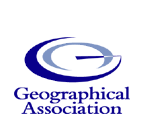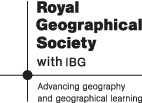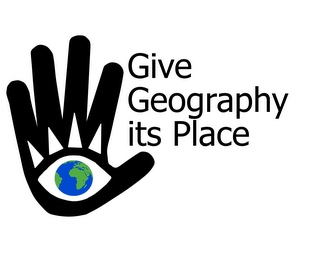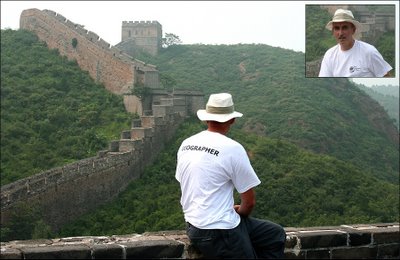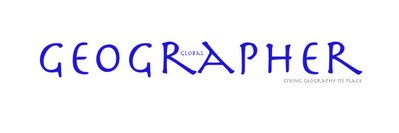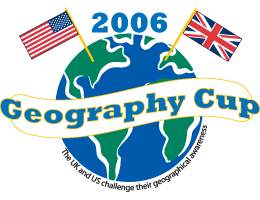In search of the G spot
We heard recently a prediction that the human race will need three planet Earths by the year 2050. This is impossible to contemplate. So we think we should focus more on the living space we have.
Our editorial line will focus on the ‘space’ in which we live, places and what makes them special and on understanding our interconnected lives. We are going to seek out and stimulate the G spot of issues and stories. G is for geography, and we are going to use geography as our main editorial ‘lens’.
We have an inter-generational editorial team of three geographers. The youngest member of the team, Hannah, brings the perspective of one who has a long future ahead of her. She is part of a generation which may see the world in radically new ways, via the internet. What is her space? Her teacher, Dan, has the task of making her lessons fun, useful, 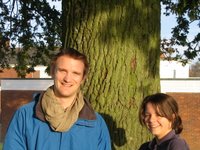 engaging and relevant. What does modern geography at school look like? David, who has been around for the longest time, thinks geography is the most significant subject to learn at school, and is vital for future thinking global citizens. Why is that claim not absurd?
engaging and relevant. What does modern geography at school look like? David, who has been around for the longest time, thinks geography is the most significant subject to learn at school, and is vital for future thinking global citizens. Why is that claim not absurd?
What we will do is devise a programme - we already have some great ideas – that will satisfy the curiosity of listeners at the start of the new year. These are the kinds of questions we will address with geography, beginning with the ‘living geography’ of young people:
Who am I? Where do I come from? Who is my family? What is my ‘geography’? Who are the people around me? Where do they come from? What is their ‘geography’? These kinds of questions concern identity. They link to further questions about …
… our place in the world: Where do I live? How does it look? How do I feel about it? How is it changing? How do I want it to change?
Living in the world has a cost, and we all have impact, which stimulate further questions about the Physical world: What is the world (and this place) made of? Why do things move? What becomes of things?
And of course, the Human world which we have made for ourselves is deeply political. Who decides on who gets what, where and why? What is fair? How do we handle differences of opinion?
A geographical perspective provides a fresh way of keeping all these questions in the frame, particularly the links between the physical and human worlds. Our editorial will try to demonstrate this. It will be worthwhile trying.
Why? Well, the Today Programme focuses on stories which frequently have a strong temporal narrative. Saturday 4th November was a good example. There were major items on
- The hold genealogy has over us in our search for our personal stories
- The heritage industry and the ‘History Matters’ campaign from the National Trust
- The US mid-term elections and the civil war – ‘history is everything’ was the phrase used.
The power of history to help explain the present is routinely acknowledged, but the significance of place and space, and geographical scale, far less so. And what about the future? In a crowded, risky world, geographical perspectives help us think intelligently about the future.The extraordinary Stern Review, published at the end of October, provides an account of the changing global climate and speculates on some of the impacts:
“Such changes would transform the physical geography of the world. A radical change in the physical geography of the world must have powerful implications for the human geography – where people live, and how they lead their lives.”
(Stern Review, Executive Summary p iv)
Geography is the subject that crosses over the physical and human worlds. Geographical perspectives may help us understand the world more fully.
The Editorial ‘G’ team
Hannah Bosher, Geography GCSE student at Langtree School, Reading
David Lambert – Chief Executive of the Geographical Association, Sheffield (www.geography.org.uk)
Dan Raven-Ellison, Geography teacher, Langtree School, Reading; co-leader of the Give Geography its Place Campaign
(www.passion4geography.co.uk)(http://givegeographyitsplace.blogspot.com/)
Some initial programme ideas
My Space – will explore the relationship between online communities and ‘real world’ communities. The feature could explore nuisance spaces, distant friends and near foreigners, young people making sense of the world through the internet, how collaboration vs. mediation is changing learning and/or other issues the news raises.
Butterfly News – will explore news stories through ‘knock-on’ effects. The line of enquiry would investigate several stages of cause and effect to make connections between people, places and issues that the news does not often address.
Today, Now – what is happening ‘now’ across a wide range of countries. This could also be what are you doing ‘now’. This would act as a snap-shot of events and experiences from across the world to mark the start of the new year. Possibly the focus can be on aspirations, hopes and longings.
Risky Thinking – why don’t people tend to ask ‘what is the geography’ of this place or issue? Why could this absence of geographical thinking be ‘risky thinking’ especially when it comes to ‘risk’ topics? In this feature a range of top geographers would be invited to explore how thinking geographically can help us understand Global climate change, conflict in the Middle East, the spread and control of disease and nuisance spaces within our communities.
Living Geographies – in two parts this feature will look at how local and international geographies might be changing in 2007. Part 1 will enquire into local spaces in the UK (transport, housing, health and education provision, shopping, change and ‘sustainable development’ such as in Sheffield-Rotherham). Part 2 will enquire in to how distant localities are also experiencing rapid change and what might happen in 2007. These might include new oil wealth in Sao Tome and Principe or another current news story.
Mywalk – introducing the concept of ‘mywalk’ which is for all, young and old, to reconnect with urban environments and the often by-passed or ignored parts of it. Mywalk is about making us think about our emotional attachments to, and feelings created by, our day-to-day surroundings, the feelings invoked by inanimate things, unexpected encounters or taken for granted spaces. Mywalk will link to perceptions of tranquillity – what enhances or detracts from people’s sense of tranquillity:
- What flicks our switches?
- What turns us on?
- What tickles us?
- What disgusts us?
- What makes us smiles?
- What makes us feel warm?
- What makes us take the long way round?
- What do we love?
- What do we hate?
In the end, mywalk is about how best we engage and enthuse the public in exploring these geographies – that is, ‘our local environment/community’. This is of great interest to those interested in communities and local government
